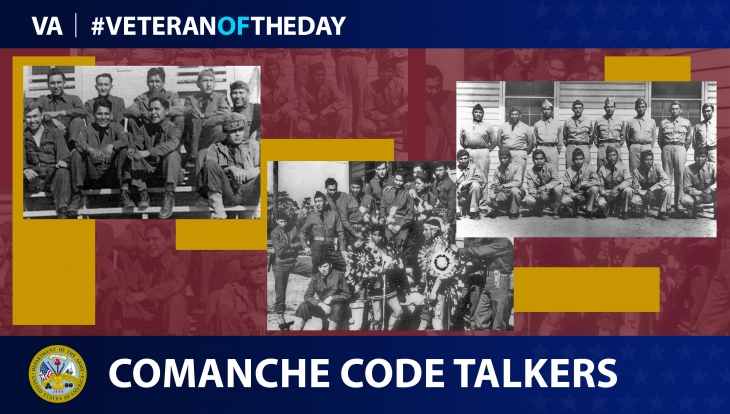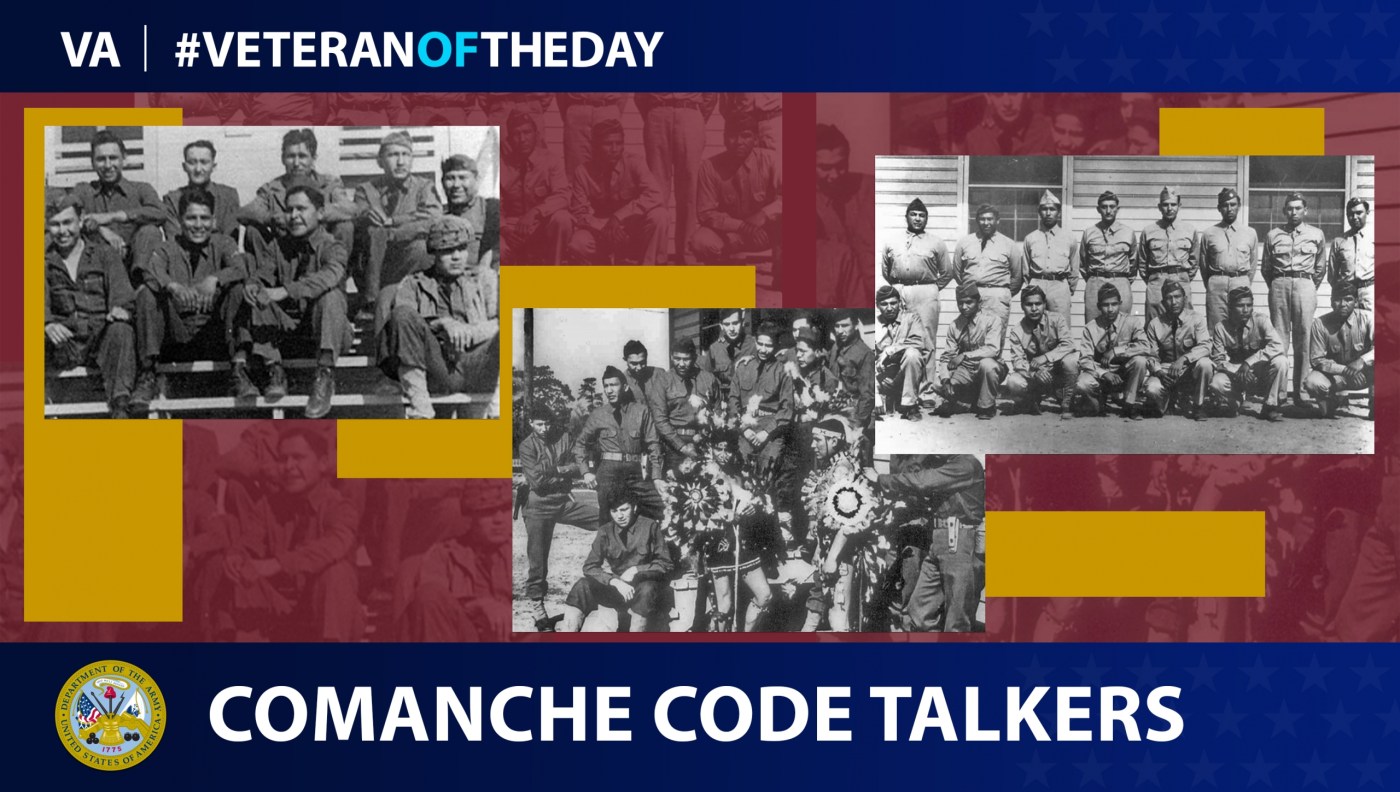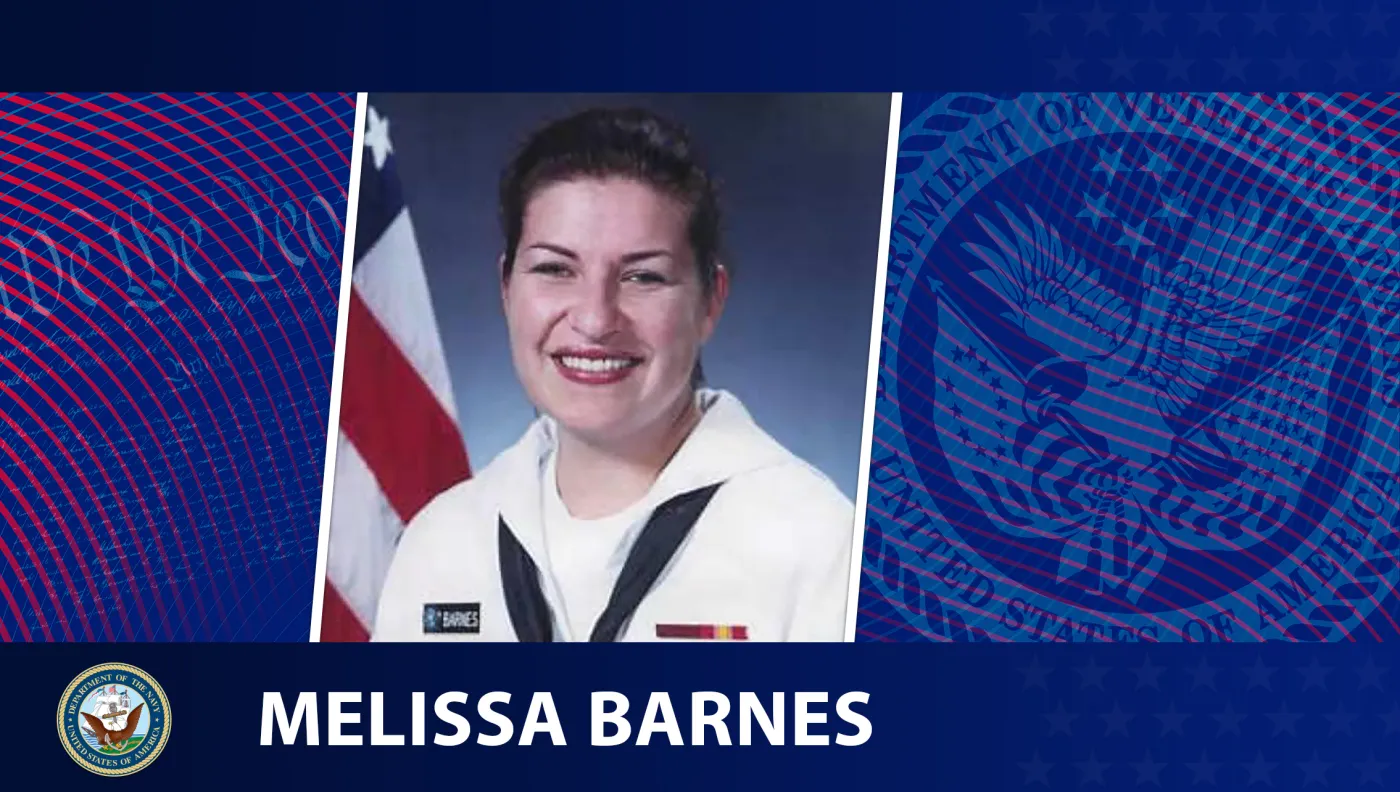
Today’s #VeteranOfTheDay honors the Comanche Code Talkers who served as communication specialists during World War II battles in Europe.
Code Talkers were indigenous peoples who used their tribal languages to communicate across the battlefield. During World War II, the U.S. military recruited many different tribes to serve as Code Talkers for all branches of service. In the winter of 1940, the Army recruited 17 members of the Comanche tribe to serve as Code Talkers. They went to Fort Benning, Georgia, and served with the 4th Signal Company of the 4th Infantry Division.
At Fort Benning, the Comanche Code Talkers received phone, radio, Morse code and semaphore training. They also developed 250 code words to describe military and geographical terms for words without indigenous equivalents. According to a 2017 article from the U.S. Army website, words like bombers were dubbed “pregnant birds” and bombs were “baby birds.” Tanks were “turtles,” and Adolph Hitler was “crazy white man.” The Comanche also learned to spell out the words that lacked specific code equivalents by using random Comanche words. “If the location started with the letter ‘A’, then I would say ‘araka’ the Comanche word for ‘alligator,’” Cpl. Charles Chibitty said on the Comanche page of the Army Heritage Foundation website.
By the fall of 1941, the Code Talkers had completed their training and conducted field exercises in Louisiana before deploying to England as part of the D-Day invasion force. On June 6, 1944, 13 Comanche Code Talkers landed on Utah Beach in Normandy, France. They went on to assist the Army during many important battles of the Ardennes campaign, such as St. Lo, the Battle of the Bulge, the Siegfried Line and Bastogne. Several Comanche soldiers were wounded in action and received the Purple Heart and other medals. The Germans never broke the Comanche Code, which was crucial in communicating in the European Theater. Chibitty said in 2002 that “[his] language helped win the war, and that makes [him] proud. Very proud.”
The Comanche Homecoming was first held in July 1946 in Walters, Oklahoma, to welcome home the Code Talkers. In November 1989, the French government and the Comanche home state of Oklahoma bestowed honors on three of the surviving members of the Comanche Code Talkers. The last surviving Comanche Code Talker, Chibitty, passed away in July 2005.
In 2008, President George W. Bush signed the Code Talkers Recognition Act into law to formally honor the service of each individual Code Talker and the participation of each tribe.
We honor their service.
Nominate a Veteran for #VeteranOfTheDay
Do you want to light up the face of a special Veteran? Have you been wondering how to tell your Veteran they are special to you? VA’s #VeteranOfTheDay social media feature is an opportunity to highlight your Veteran and his/her service.
It’s easy to nominate a Veteran. Visit our blog post about nominating to learn how to create the best submission.
Contributors
Writer: Sarah Concepcion
Editor: Katie Wang and Katherine Berman
Fact checker: Lia Sansoucy
Graphic artist: Grace Yang
Topics in this story
More Stories
This week’s Honoring Veterans Spotlight honors the service of Marine Corps Veteran Opha May Johnson, who served during World War I.
This week’s Honoring Veterans Spotlight honors the service of Navy Veteran Melissa Barnes, who died while serving on Sept. 11, 2001.
This week’s Honoring Veterans Spotlight honors the service of Army Veteran Pamela Dorothy Donovan, who served as a nurse in Vietnam.






Very Interesting
To much of the public the Navajo code talkers with the Marines were the only ones who did this. My dad told me of several tribal groups that provided code talker service but they were not publicized like the Navajo group. All were notable groups and it would be nice to have some one collate the entire elements that did this service to the various military forces.
We honor the service of the Comanche Code Talkers.